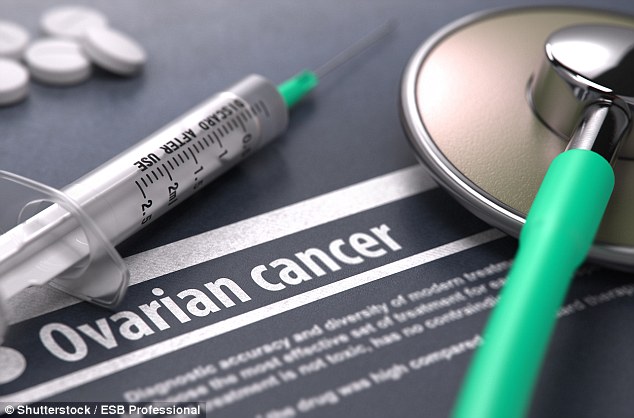By Kelly Irvin
Did we bring this scary, painful, financially draining monster into our lives by eating too many cookies and not doing enough jumping jacks? We need a reliable diagnostic screening tool for ovarian cancer and we need it now.
An article published in The Journal of the American Medical Association (JAMA) in March reports that a study has found that eating more than three eggs a week is associated with a higher risk of heart disease and early death. In August, American Heart Association News answered the question of whether eggs are good for you by saying a study published in May in the journal Heart found that “an egg a day just may keep the doctor away.” The writer of the latter article also said the key is for us to know our risk factors. If you’re at risk for heart disease, you should probably reduce the amount of cholesterol in your diet—hence, fewer eggs.
What does this have to do with cancer, you ask? It is a perfect example of how people with chronic diseases (or those who are trying not to get them) constantly have whiplash because of conflicting results from research studies and how they’re reported to the general public.
Side effects of the drugs I’m taking for my cancer have included weight gain, high blood pressure, and escalating cholesterol. Because of a motor neuron disease, my ability to do aerobic exercises is limited.
Which leaves me with diet. My oncologist agreed with me that knowing what is okay to eat is patently unclear. I can remember when peanut butter was a no-no. Now we’re told it’s a “good” fat. Same with avocados.
With cancer, the biggie has always been does sugar really feed cancer. For three years, I’ve been told and read that this is a myth perpetuated by folks not understanding how glucose is used in PET scans. In one instance, my glucose was low before treatment and my oncologist told me to have a cookie or a piece of chocolate. I surmised she wasn’t worried about sugar feeding cancer.
I attended a webinar in which a registered dietician said we should not deprive ourselves of sweets in moderation during treatment. It’s a tough enough gig as it is. Then comes a recent article reporting that eating sugar can contribute to the development of cancers based on a study that has been done on mice, but not yet confirmed in humans.
At a Woman’s Health Symposium in October, doctors involved in this study recommended a high-fat low-carbohydrate ketogenic diet. The idea is that high-in-fat foods make you feel full longer and sugars lead to inflammation of the colon which triggers the development of colorectal tumors. While the weight loss is great, it’s very hard for a lay person to understand how this will be a good plan for someone with high blood pressure and high cholesterol. I’m sure there will be much more study and discussion of the pros and cons of this approach to reducing cancer risk.
There is a deeper underlying issue that worries me in all of this. The articles suggest if we do the right thing, we can reduce our disease risks. We’d all like to believe it’s that simple. The problem is that I was at a healthy weight, I exercised seven days a week, I gave up smoking over thirty years ago and I have no genetic predisposition or family history of cancer. I still got cancer.
These articles tend to make people feel as if somehow getting cancer was their fault. Did we bring this scary, ugly, unending, painful, financially draining monster into our lives by eating too many cookies and not doing enough jumping jacks? Sometimes, we just get cancer.
When I received my diagnosis, I had had an annual pelvic exam six months earlier, a mammogram five months earlier, a breast biopsy four and a half months earlier. I started seeing an oncologist for Atypical Ductal Hyperplasia (ADH). All that time I had cancer growing inside me and the gynecologist, radiologists and surgeon involved didn’t find it. I did all the right things and still ended up with a stage 4 diagnosis when my oncologist discovered the tumors by accident through a baseline chest CT scan.
Healthy living is tremendously important, but we can only do what we can do. We need a reliable diagnostic screening tool for ovarian cancer. We need it now. It’s more important than advice that puts the onus on the woman to somehow keep from getting this disease by what she eats, weighs or how often she exercises. I’d love to turn on the evening national news soon to see the anchor announcing the discovery of a desperately needed, simple laboratory test that allows the early detection of ovarian cancer. I think that’s something we can all agree on.


